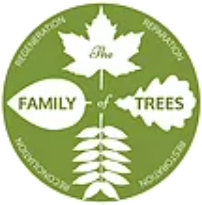Cafeteria waste contributes immensely to our ever-growing landfills. Considering this, it was easy for me to implement no-waste lunches in packing for my three school-age children, but I thought we could take it one major step further and reduce the waste for their entire school: Edina Highlands Elementary. After reading an article about Hennepin County initiating an organics recycling program in their schools, I called John Jaimez at Hennepin County for more information, and Highlands began an organics recycling program too.
The program required educating students, parents, and volunteers. The school also engaged a “Green Team” of student leaders to review and implement new practices. The children made certain that containers for collecting organic recyclables were placed in each classroom. Students would take the full containers down to the lunch room for recycling. The containers were set out with the “second chance paper box” and the paper and plastic recycling bins. After we educated the parents, they and their children changed the lunches they packed each day by switching out plastic baggies, drink boxes, and non-recyclable individually packaged snacks for reusable containers and food bought in bulk.
As a parent volunteer, it was magical watching the children become empowered to do something about a big problem by simply changing how they brought lunch to school. My role was to hang out by the recycling and help children sort out their trash, organics, and recyclables. Students would proudly say, “See, I didn’t have any trash today!” Or “Look Mrs. Jones, I have reusables now.” Implementing the organics recycling program brought the cafeteria trash from five bags per day to one.
Although the students were taking their part seriously, the Sodexo food service program, was lagging behind in its efforts to reduce waste. We held a series of meetings with administrators, parents, and a Sodexo representative, and worked to change packaging, eliminate bottled water, switch to compostable cups, and even provide sporks made from a biodegradable corn product.
Once the program was in place, another parent and I were inspired to take the project even further. We wrote a grant proposal to establish four green classrooms next fall. We received a Community POWER grant funded by the Solid Waste Management Coordinating Board. The pilot classes will educate the school, its 500 students, and their families on how they can reduce waste and toxicity at school and at home. Students will be equipped with reusable shopping bags, lunch boxes, cloth napkins, reusable beverage containers, and a pesticide-free-lawn sign reading “Safe for All Living Things.” The teachers will instruct the children on alternative ways to avoid unnecessary waste and toxicity, and the kids will be able to take a voluntary “no plastics use pledge.” Students will involve their families in creating and implementing low-waste practices for their homes, as well.
Consider taking some steps with your own child at school to reduce waste and green the school. You can start by packing a no-waste lunch. Use the resources below to challenge yourself or your school, and create a cleaner environment!
According to a study done by the Washington County Department of Health and Environment, the average child produces the following waste amounts from breakfast and school lunches:
Breakfast and lunch combined:
2.02 lbs/student/week or 84.84 lbs/yr
Lunch only waste:
1.62 lbs/week or 68.04 lbs/yr
The breakdown of the waste is as follows:
– 37.45% food waste (leftovers)
– 44.97% drink waste (milk and juice)
– 11.52% paper waste (primarily milk cartons, drink boxes, napkins, and paper towels)
– 6.06% plastic waste (mostly sandwich bags and pre-packaged snack wrappers)







